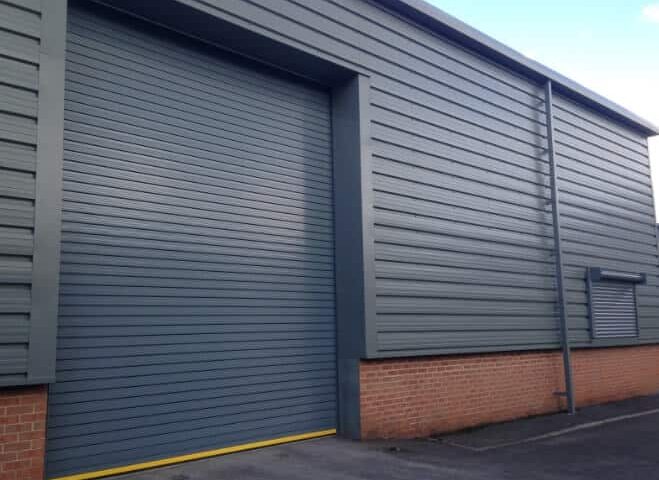Ice is a versatile and essential element in the food and beverage industry. Whether you’re running a restaurant, a bar, or a hotel, having a reliable source of ice is crucial to meet the needs of your customers. This is where commercial ice machines step in, providing a constant supply of ice to keep your operations running smoothly. In this comprehensive guide, we will explore the world of commercial ice machines, from their types and features to maintenance and purchasing considerations.
Understanding the Importance of Commercial Ice Machines
When it comes to serving cold beverages, preserving food freshness, or simply enhancing the dining experience, ice plays a significant role. Commercial ice machines are designed to meet the high-demand requirements of businesses in the food and beverage industry. They are built to be efficient, durable, and capable of producing a large volume of ice consistently. Let’s delve deeper into the world of commercial ice machines to understand their importance.
Types of Commercial Ice Machines
Commercial ice machines come in various types, each tailored to different operational needs. Understanding the types can help you make an informed decision for your business.
1. Ice Cube Machines
Ice cube machines are among the most common and versatile commercial ice makers. They produce clear, solid ice cubes in different shapes and sizes, making them suitable for a wide range of applications. You can choose from various ice cube shapes, including crescent, cube, and nugget, depending on your specific requirements.
- Crescent Ice: Crescent ice cubes are popular for their aesthetic appeal and slow melt rate, making them ideal for bars and restaurants.
- Cube Ice: Cube ice is a classic choice for many businesses, offering a consistent and slow-melting ice cube for drinks.
- Nugget Ice: Nugget ice, also known as chewable ice, is a favorite in the beverage industry for its soft and easy-to-chew texture.
2. Flake Ice Machines
Flake ice is small, soft, and pliable, making it perfect for applications where the ice needs to be molded or wrapped around food items. It’s commonly used in seafood displays, salad bars, and healthcare facilities for therapeutic purposes. Flake ice machines produce ice by scraping ice off a cooled drum.
3. Nugget Ice Machines
Nugget ice, as mentioned earlier, is known for its chewable texture. It is highly sought after in fast-food restaurants, convenience stores, and healthcare settings. Nugget ice machines create small, soft ice pellets that are easy to chew and absorb flavors.
4. Undercounter Ice Machines
Undercounter ice machines are designed to fit conveniently under countertops or bar areas. They are compact and space-saving, making them ideal for establishments with limited space. These machines are available in various ice types, including cubes, flake, and nugget.
5. Modular Ice Machines
Modular ice machines are larger and produce a high volume of ice. They are typically used in commercial kitchens, hotels, and large-scale foodservice operations. These machines can be paired with ice bins or dispensers for easy access to ice.
Features to Consider
Commercial ice machines come with a range of features that can significantly impact their performance and functionality. When selecting an ice machine for your business, consider the following features:
1. Production Rate
The production rate of an ice machine indicates how much ice it can produce in a 24-hour period. It’s essential to choose a machine that can meet your daily ice requirements.
2. Ice Type
Consider the type of ice that best suits your business. Whether you need cubes, flakes, or nuggets, make sure the machine you select can produce the desired ice type.
3. Storage Capacity
Some ice machines come with built-in storage bins, while others require separate ice bins or dispensers. The storage capacity should align with your daily ice consumption.
4. Energy Efficiency
Energy-efficient ice machines can help reduce operational costs. Look for machines that are ENERGY STAR certified for optimal energy savings.
5. Water Filter Systems
Water quality is crucial for producing clean and clear ice. Machines with built-in water filtration systems can improve ice quality and extend the machine’s lifespan.
6. Durability
Invest in a reliable and durable ice machine to ensure it can withstand the demands of a commercial kitchen or bar.
7. Ease of Maintenance
Regular maintenance is key to keeping your ice machine running smoothly. Machines with easy-to-access components and user-friendly controls make maintenance more manageable.
Maintaining Your Commercial Ice Machine
Proper maintenance is essential to keep your commercial ice machine running efficiently and producing high-quality ice. Here are some tips for maintaining your ice machine:
1. Regular Cleaning
Regularly clean the ice machine, including the interior components, ice bin, and water distribution system. Follow the manufacturer’s guidelines for cleaning and sanitizing.
2. Inspect for Leaks
Check for any water leaks or condensation issues. Address any leaks promptly to prevent water damage and mold growth.
3. Replace Water Filters
Change the water filters according to the recommended schedule. Clean water is essential for producing clear and clean ice.
4. Sanitize the Ice Bin
Sanitize the ice bin at regular intervals to prevent the growth of bacteria and mold. Use a food-safe sanitizer and follow the manufacturer’s instructions.
5. Check for Ice Quality
Regularly check the quality of the ice produced. If you notice any changes, such as cloudy or discolored ice, it may be a sign of a problem that needs to be addressed.
Purchasing Considerations
When it comes to purchasing a commercial ice machine for your business, there are several factors to consider to make an informed decision.
1. Budget
Determine your budget for an ice machine, including installation costs. Keep in mind that quality and reliability are crucial, so be prepared to invest in a reputable brand.
2. Space and Installation
Consider the available space and installation requirements. Ensure that the machine can fit comfortably in the allocated space and that the installation process is straightforward.
3. Ice Production Needs
Assess your business’s daily ice production needs. Consider factors such as the number of customers and the type of ice required to make an informed choice.
4. Energy Efficiency
Choose an energy-efficient ice machine to reduce operational costs and environmental impact.
5. Warranty and Support
Check the warranty and available customer support options. A strong warranty and responsive support can save you money in the long run.
6. Brand Reputation
Research and choose reputable brands known for producing high-quality, reliable commercial ice machines.
Conclusion
Commercial ice machines are a vital component of the food and beverage industry, ensuring businesses can provide cold beverages and preserve food freshness. With various types and features to choose from, it’s essential to understand your specific requirements and select the right ice machine for your business. Regular maintenance is key to keeping your ice machine in optimal condition, and when making a purchase, consider factors such as budget, space, ice production needs, and energy efficiency. With the right commercial ice machine in place, you can serve your customers with refreshing and enjoyable experiences, one ice cube at a time.





